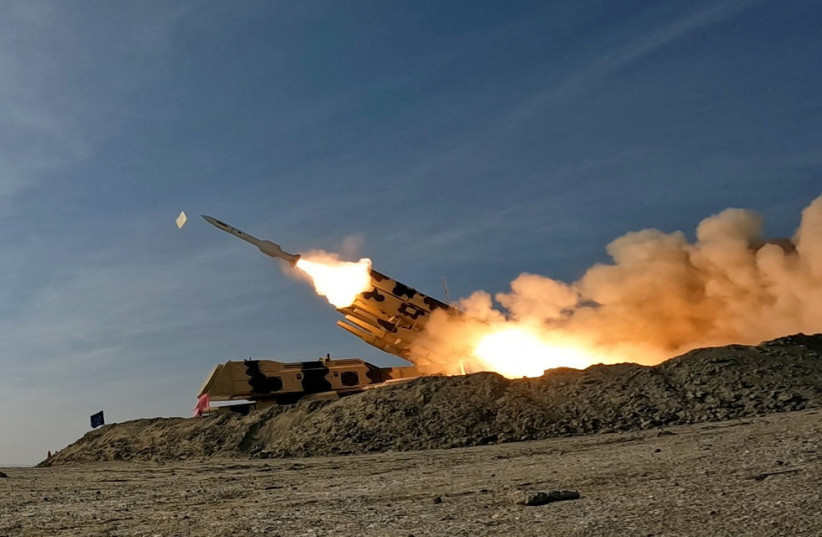“The enemies of the Iranian nation should understand that any violation of our airspace will cause them significant harm,” Iran’s Armed Forces Chief of Staff said.
By JERUSALEM POST STAFFJUNE 3, 2025 08:18

Iran is strengthening its air defense systems amid preparations for the possibility of an American or Israeli attack on the country’s nuclear infrastructure should nuclear negotiations fail, the Financial Times reported on Sunday.
“We are witnessing an impressive improvement in the capabilities and competence of the country’s air defense system,” Iran’s Armed Forces Chief of Staff Mohammad Baqeri reportedly said in May, adding that Iran’s military has seen a “multi-fold increase in investments.”
“The enemies of the Iranian nation should understand that any violation of our airspace will cause them significant harm,” he added.
According to Western intelligence assessments and security analysts’ investigation of satellite imagery, Iran appears to have relocated several anti-aircraft missile launchers to positions close to key nuclear sites like Natanz and Fordow, the report says.
A significant portion of Iran’s most advanced anti-aircraft missiles and radar systems – including its long-range Russian S-300 systems – were destroyed or damaged during Israeli air strikes on the country in October and April 2024, the FT states.
A missile is launched during a military exercise in an undisclosed location in the south of Iran, in this handout image obtained on January 19, 2024 (credit: IRANIAN ARMY/WANA/REUTERS)
Despite that, experts believe that many components of Iran’s air defense system remain intact or appear to have been repaired in recent months.
Weapons have been displayed to the public to refute destruction claims
Military equipment and weapons have been publicly displayed in Iran, with an S-300 launcher and a radar truck presented in Tehran during the country’s Army Day celebrations in May, and an S-300 shown launching an anti-aircraft missile during a military exercise in February.
“There is no doubt that Iran is seeking to refute the claim that its advanced air defense systems have been destroyed,” Nicole Gryzewski of the Carnegie Institution in Washington told the FT.
Israel would have the upper hand if it came to a fight
“Israel currently has almost complete air superiority over Iran,” Robert Tolast, a researcher at the British RUSI Institute, told the FT. “But such an attack would require waves upon waves of aircraft for hours. Crew fatigue comes into play – the longer they are over Iran, the greater the chance that something will go wrong.”
“From the Iranian side, this effort is trying to recreate the success story of Iran’s ballistic missile development program,” Fabian Hintz, a research fellow at the International Institute for Strategic Studies in Britain, said to the FT.
Dealing with this defense system would not be easy for Israel, John Alterman, chairman of the Global Security and Geopolitical Strategy Program at the Center for Strategic and International Studies in Washington, told the FT. “But is it beyond Israel’s capabilities? No, of course not. The Israelis have been training for exactly this scenario for decades.”
Nuclear negotiations are ongoing between Iran, US
Talks between Washington and Tehran over the future of Iran’s nuclear program are ongoing. Most recently, the US presented a proposal for a new nuclear deal to Iran on Saturday via Oman’s Foreign Minister Sayyid Badr Albusaidi, who was on a short visit to Tehran and has been mediating nuclear talks between Iran and the US.
However, a senior diplomat close to Iran’s nuclear negotiating team said on Monday that Iran is poised to reject the proposal, slamming it as a “non-starter” that fails to address Tehran’s interests and leaves Washington’s stance on uranium enrichment unchanged.
“Iran is drafting a negative response to the US proposal, which could be interpreted as a rejection of the US offer,” the diplomat said.
Reuters contributed to this report.
Content retrieved from: https://www.jpost.com/international/article-856332.
